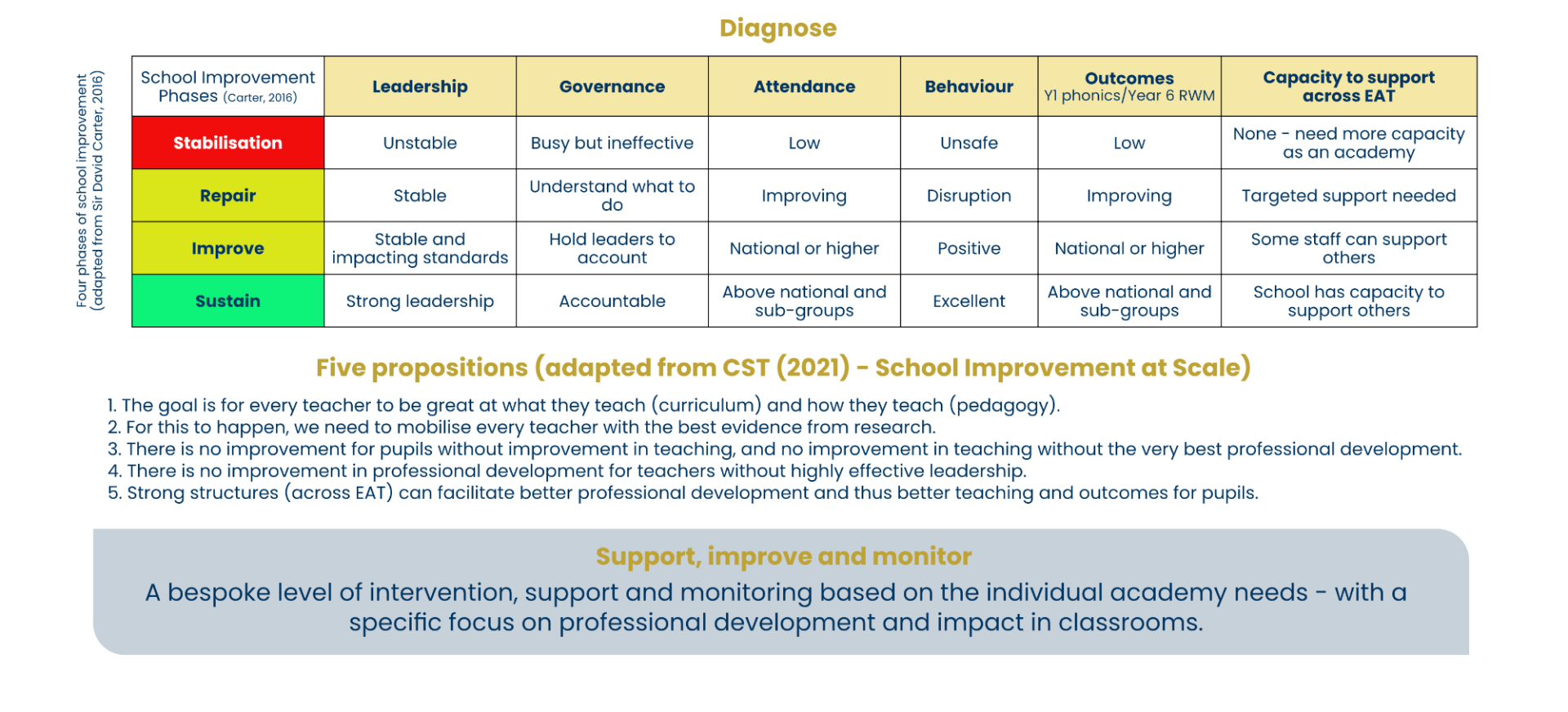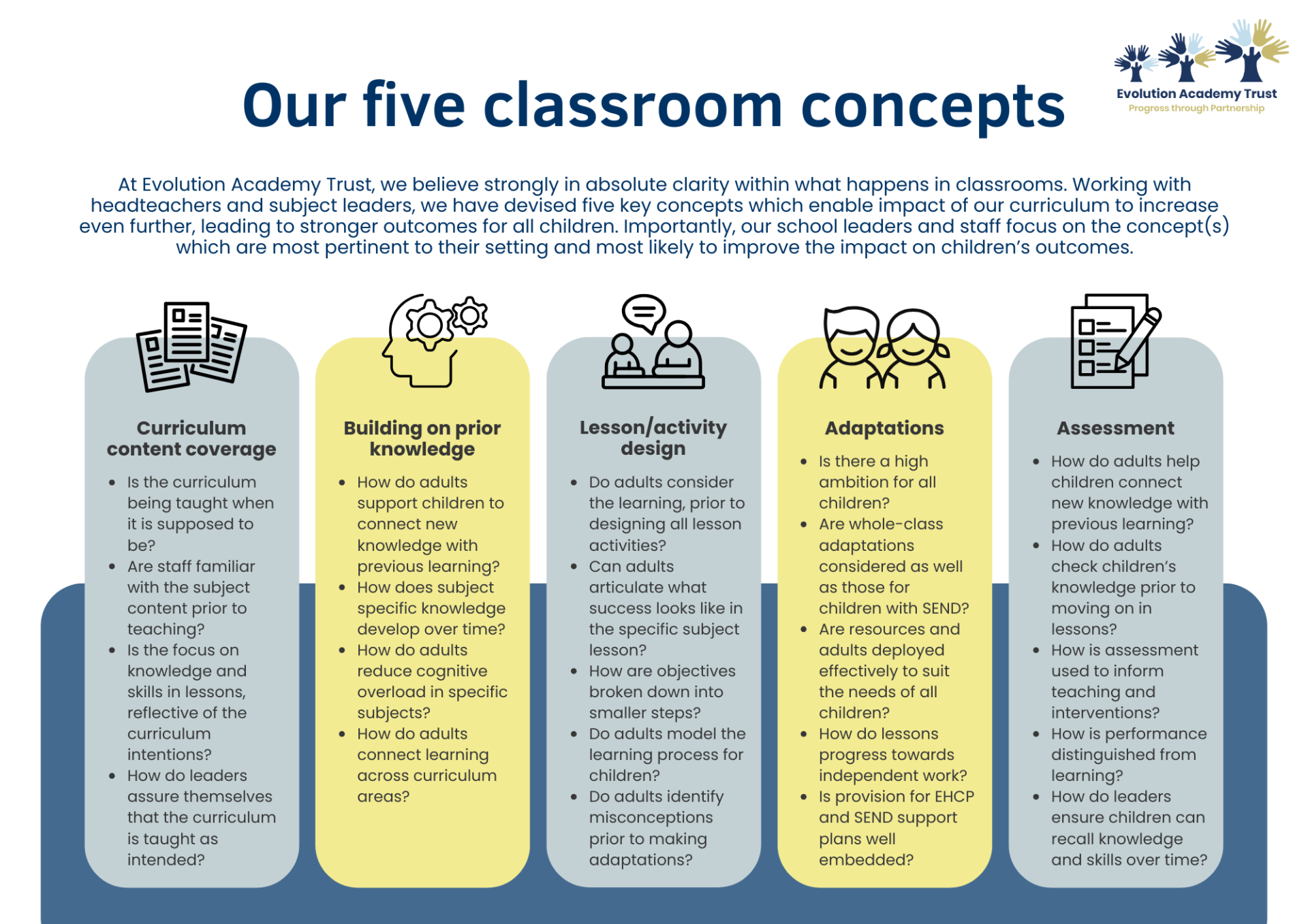School improvement
At the heart of what we all do at Evolution Academy Trust, is to ensure that our schools continually improve the life chances of children. This means that as well as feeling safe and happy at school, all children should experience an outstanding education. The curriculum must have a strong knowledge base to ensure children know and remember more, which can then be applied using key skills. Classrooms should be well-informed from academic research and effective pedagogical practice, enabled through the highest quality professional development.
Our main mechanism for school improvement is therefore through intelligent, bespoke support, challenge and professional development for headteachers, senior and subject leaders, teachers and support staff.
- We have regular school-based and centralised staff training.
- We focus on strong partnerships and collaboration across our schools.
- We focus on the context, high ambition, subject knowledge and pedagogy.
- As a primary MAT, focused on school improvement as our core business, we build upon the CST and David Carter’s school improvement models, with a strong focus on the professional development of all staff. We diagnose where schools are using a range of data. We then support, improve and monitor our schools on a bespoke basis and with a strong bias towards professional development.

Curriculum
As a Trust, providing children are safe and attending well, we prioritise reading. Almost all of our professional training for staff both in schools and across our Trust is focused on the quality of education.
As a primary specialist MAT, we have experts in EYFS, phonics, writing and other subjects. We empower headteachers to make informed curriculum choice and do not believe in a one-size fits all. Of course when needed, we provide absolute clarity around the quality of education, but our experience tells us to listen to headteachers, governors and consider the specific community.
With existing infant and junior schools, we recognise the specific challenges these schools can face. We are therefore more principled in our approach, for example our pedagogy is based on five concepts:

